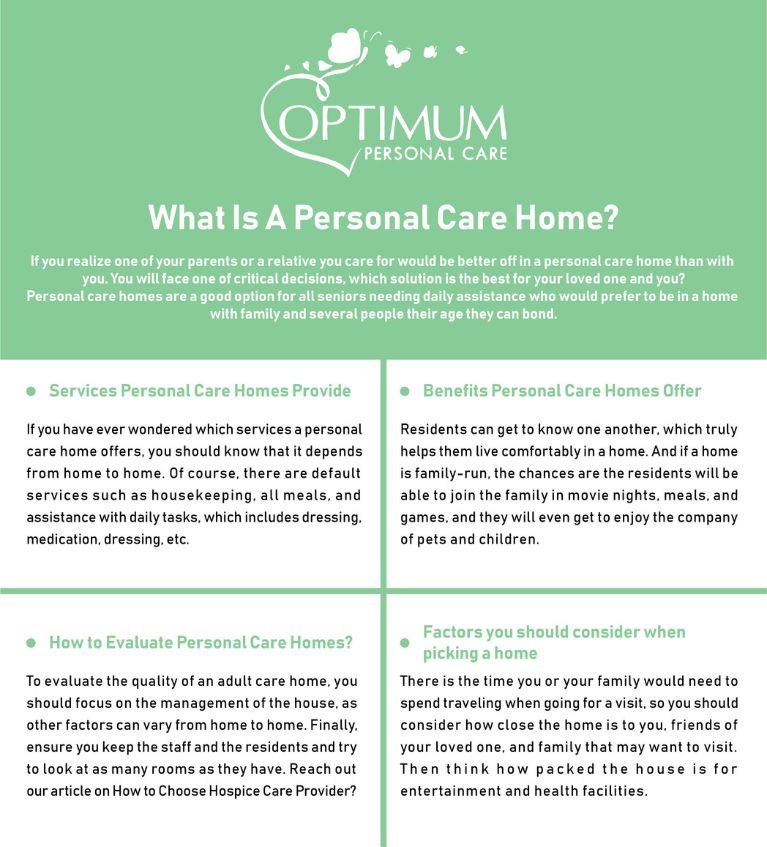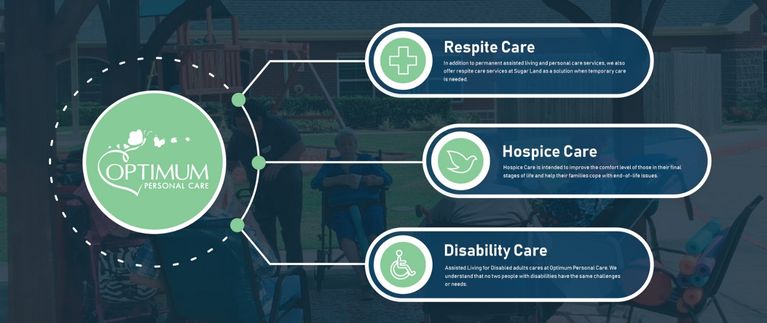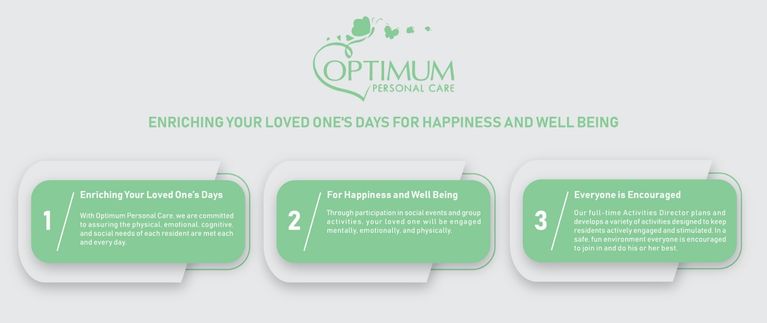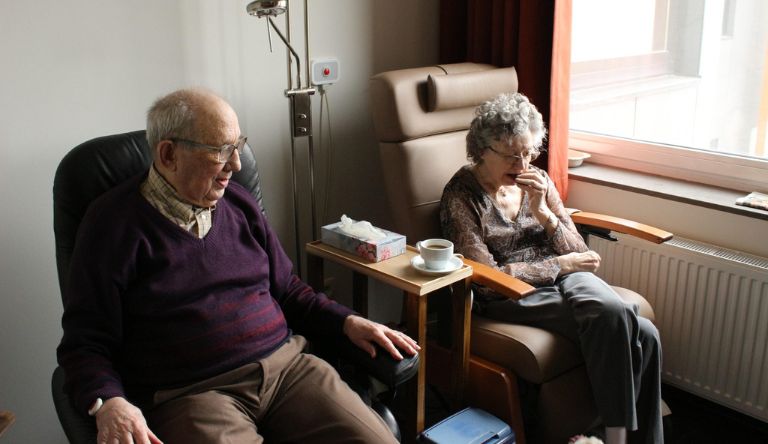If you recognize that one of your parents or a family member you care for would be better off in a personal care home rather than with you. You will have to make an important decision. Which options are best for you and your loved one? If you go online and begin researching Houston. You will come across nursing care homes, continuing care retirement communities, independent living apartments, family-type dwellings, and assisted living Missouri City. There are numerous facilities to choose from.
It’s easy to see why this statement is ambiguous. This article will help you comprehend personal care homes and their services.
What are Personal Care Homes?
Personal care homes provide older folks with attention and comfort in their own homes. They are also known as residential or adult care homes, and most of their inhabitants have private or semi-private rooms. Furthermore, such houses are frequently operated by a family, with members living on-site.
To operate legally, they must receive a license from their state, and they typically accommodate two to 10 seniors for whom they offer care.
Primary Benefit of Senior Care Residences
One of the advantages of these homes is the more intimate setting they create, which allows elders to get one-on-one customized attention. All of this is in a house modified to include the same safety measures as bigger assisted living homes, such as safety rails, grab bars, wheelchair-accessible ramps, emergency call buttons, and rooms.

Personal care homes are an excellent alternative for all seniors who require daily support but prefer to live in a home with family and other seniors their age with whom they may bond.
Services Personal Care Homes Provide
If you’ve ever wondered what services a personal care home provides, you should realize that it varies for each dwelling. There are standard services such as housekeeping, all meals, and assistance with everyday duties such as dressing, medicine, and dressing, among others. If you want a complete image of hospice and Respite care services, note that it depends on the person’s capacities.
Some facilities offer transportation to any scheduled trips or appointments. Some people, however, do not have that option. Cognitive care homes are residences for seniors with memory impairments such as dementia or Alzheimer’s disease, and they provide greater levels of care. These facilities help with anything from spoon-feeding to changing diapers for adults.
Care Plans
Care facilities specializing in providing care for persons with certain diseases establish care plans that successfully avert problems and manage their patients’ needs. For example, if a personal care home is for the elderly with diabetes, its staff would design a particular diet and meals, manage insulin, and arrange physical activities for seniors that their doctor has suggested.
Key Benefits of Personal Care Homes
Personal care homes may be a natural home away from home for all elders who do not feel at ease in larger communities. Residents can also get to know one another, significantly improving their ability to live comfortably in a home. And suppose a family operates a home. In that case, occupants are likely to be able to join the family for movie nights, meals, and activities, as well as enjoy the companionship of dogs and children.
Nursing Staff
Personal care homes may not have all of the convenience and luxury facilities that senior living communities provide, but their levels of personal care are far more significant. That means that staff is constantly present and within the home for any residents’ needs, and depending on the care levels they give, they can be available at night.
Age-In-Place Homes

Some residential facilities provide their inhabitants with the option of living in so-called “age-in-place environments.” It means that the homes give various degrees of care so that elders can stay till the end of their lives. Furthermore, age-in-place homes give patients and their family’s peace of mind by not transferring elders to nursing homes if they unexpectedly require more care.
Costs of a Personal Care Home
The cost of a residential facility varies based on the degree of care offered and the state. However, personal care homes are often half the price of nursing homes. It is also less expensive than an assisted living facility.
Monthly expenses range from $1,500 to $4,500; if memory care services are required, they are nearly always charged an additional $1,000 per month. Any financial aid that may be available depends on the state in which you are looking for a home. Such houses take solely private cash.
Affordable Personal Care Homes
You should note that many personal care facilities offer typical amenities and charge a monthly fee. If you require any more services not included in that package, you will have to pay an additional cost.
Some homes provide premium facilities, and such homes demand a higher monthly price, but you won’t have to worry if your loved one requires transportation or an unexpected visit to the doctor.
Particular homes charge you for the regular choice, do not offer the premium option, and provide all the services that residents require without costing you extra.
How to Evaluate Personal Care Homes?
Assess the quality of an elder care home by concentrating on house management. Other elements may differ from one property to the next. Visit the home you wish to review at various times to watch how it is managed daily. Maintain the staff and residents, and attempt to look at as many rooms as they have. Reach out to our article on How to Choose Hospice Care Provider?
Tips for Evaluation
Following is a checklist of things you should consider in a personal care home:

- Confirm their excellence by asking to examine their license documentation, state evaluation reports, and training qualifications. Monitor how they engage with the residents so you can understand how they treat them. Also, attempt to track how the residents interact with one another.
- Examine their menus, examine how their meals are prepare, and perhaps test the cuisine. You should also do tours of the homes, looking for senior safety adaptations such as functional call buttons, grab bars in rooms and bathrooms, lighting and bright lines to emergency exits.
- Don’t be afraid to ask any questions, whether concerning daily activities, visiting hours, or general regulations and procedures. Finally, speak with the residents.
- Inquire of the elderly whether they have any problems or are content. Their responses will give you a better sense of the home in question and whether it is the place you want to give up to care for your loved one.
Factors Considering While Selecting a Home
When it comes to buying a house, location is everything. Because personal care homes are typically located in suburban areas, they may be close to shopping centers and parks while further away from culture, art events, and medical offices. There is time you or your family would need to travel while visiting, so think about how accessible the home is to you, your loved one’s friends, and your family who may want to view it. Consider how crowded the house is for entertainment and health care.
When comparing residential homes and other types of family-type care, remember that all possibilities are comparable. You can find differences in subtleties. On the other hand, personal care homes are regarded as a complete package or the closest thing to it. Everything said above should have given you a better idea of whether residences like these are the best option for you and your loved one.


